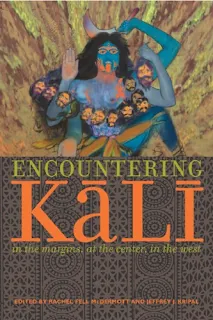Memories of Murder (2003)
We look at things around us, and we get awed. We observe, scrutinise, see a pattern, try to connect the dots and suddenly be cocksure about something. We brag and gloat that we have cracked it like we had unveiled the secrets of the Universe. Then it would hit you right smack in your face - that something did not turn out as we thought it would. We are shocked. We deny it. Cognitive dissonance would set in. Our ego would not accept our failure. We would blame error in experimentation, that somebody had slept on the job, that it just cannot be.
What we do next may make or break our civilisation. We can just deny that the whole thing did not happen and move on with life, content with our prior knowledge. We can tell ourselves that we have learnt everything already and that there is nothing more to earn. Or be a sceptic and retrace our every step and try to outline where and when and how things can go wrong. The former is the easy way out that maintains status quo and maintains the hierarchy while the latter is more problematic. Paradoxically, scepticism, rethinking and re-questioning are the very qualities that keep our civilisation propelling forward. Lose that, and we will be extinct.
The Koreans have leapt forward in many fields, science, technology, medicine, economy and of course the art form. Besides providing Psy, boy bands and soap dramas to the world, the film industry is a force to reckon. This film is praised for its storyline, particularly the climax. It is based on the series of unresolved murders that happened in South Korea between 1986 and 1991. It narrates the escapades of two regular detectives and a newly transferred one from the big city, in 1985, who desperately try to solve three murders involving young girls. They see a pattern in the crimes; the victims are females, all wear red, that the event happens on a rainy day and is preceded by a particular song requested on the radio. They come so close to solving the case until a vital clue comes against their suspicion. It happens repeatedly until they had to close the case.
18 years later, after they had left the service and lead their own lives, the memories of this unsolved murder stay in their mind. The main character, as he is passing through the crime scene one day, decides to stop to have a look. As he is scrutinising the area and the avalanche of recollection about the death come pouring in, a young passerby asks him about his activity. He tells her that he is looking at something that he was working on many years previously. The bewildered girl replies that another man was doing the same thing just a few days before that. The puzzled ex-detective asks her to describe the man. The answers that she gives only brought him back to the memory his detective days, "Oh, just an ordinary-looking man!"
The detective must be telling himself, anyone can commit murder. He does not have a different identifying look. Evil resides in all of us. When our shields are down when the time is ripe and at the spur of the moment, humanity fails, and darkness prevails.
We look at things around us, and we get awed. We observe, scrutinise, see a pattern, try to connect the dots and suddenly be cocksure about something. We brag and gloat that we have cracked it like we had unveiled the secrets of the Universe. Then it would hit you right smack in your face - that something did not turn out as we thought it would. We are shocked. We deny it. Cognitive dissonance would set in. Our ego would not accept our failure. We would blame error in experimentation, that somebody had slept on the job, that it just cannot be.
What we do next may make or break our civilisation. We can just deny that the whole thing did not happen and move on with life, content with our prior knowledge. We can tell ourselves that we have learnt everything already and that there is nothing more to earn. Or be a sceptic and retrace our every step and try to outline where and when and how things can go wrong. The former is the easy way out that maintains status quo and maintains the hierarchy while the latter is more problematic. Paradoxically, scepticism, rethinking and re-questioning are the very qualities that keep our civilisation propelling forward. Lose that, and we will be extinct.
The Koreans have leapt forward in many fields, science, technology, medicine, economy and of course the art form. Besides providing Psy, boy bands and soap dramas to the world, the film industry is a force to reckon. This film is praised for its storyline, particularly the climax. It is based on the series of unresolved murders that happened in South Korea between 1986 and 1991. It narrates the escapades of two regular detectives and a newly transferred one from the big city, in 1985, who desperately try to solve three murders involving young girls. They see a pattern in the crimes; the victims are females, all wear red, that the event happens on a rainy day and is preceded by a particular song requested on the radio. They come so close to solving the case until a vital clue comes against their suspicion. It happens repeatedly until they had to close the case.
 |
| How the man look? Just ordinary! |
The detective must be telling himself, anyone can commit murder. He does not have a different identifying look. Evil resides in all of us. When our shields are down when the time is ripe and at the spur of the moment, humanity fails, and darkness prevails.
This work is licensed under a Creative Commons Attribution 4.0 International License.













